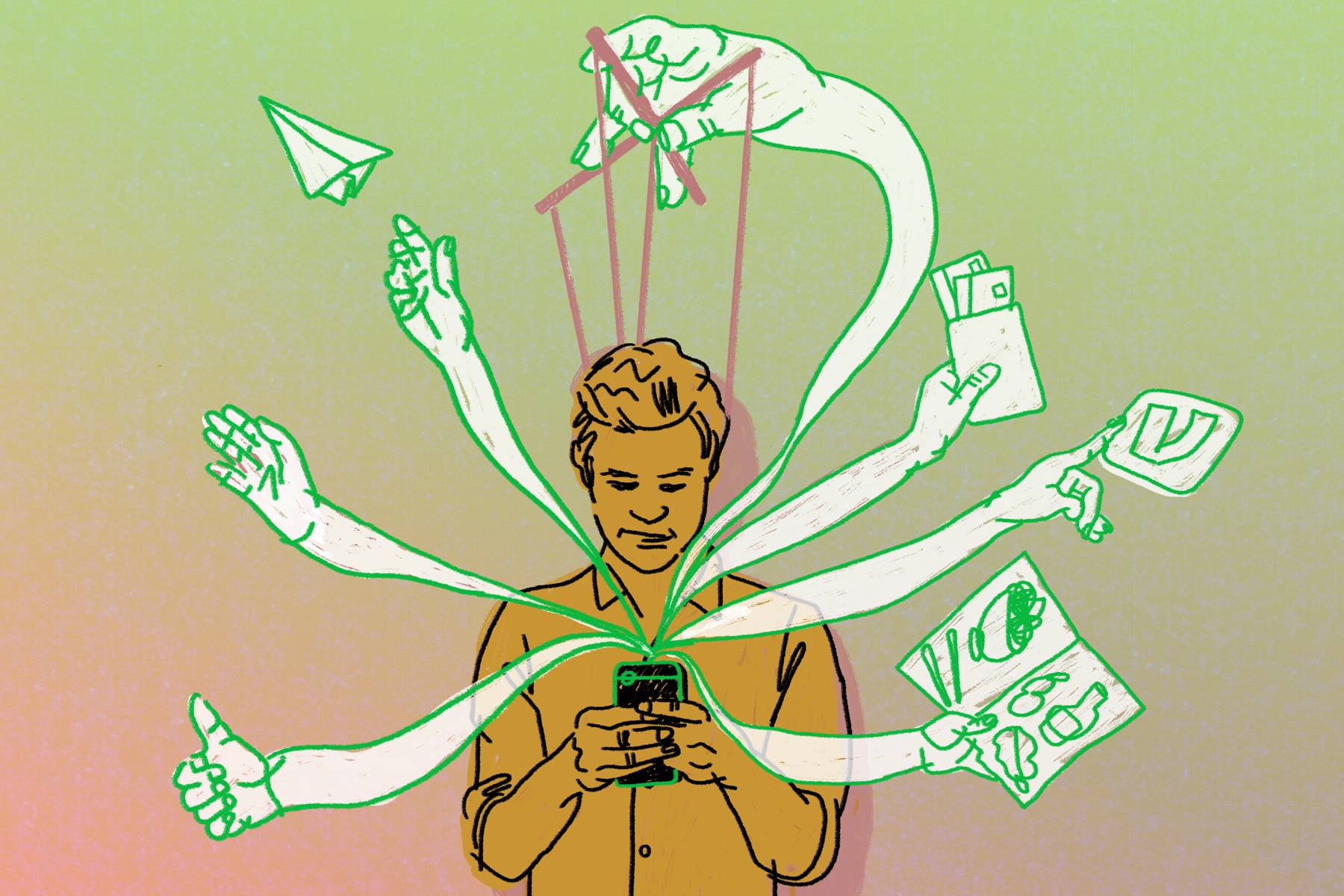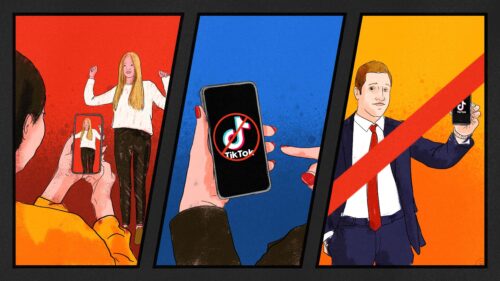What is WeChat? The super-app you can’t live without in China
If there is one thing Facebook founder Mark Zuckerberg wishes he could create, and will never be able to acquire or replicate, it’s WeChat — China’s super-app, which has changed the way people use their phones, and disrupted the social media industry.

If there is one thing Facebook founder Mark Zuckerberg wishes he could create, and will never be able to acquire or replicate, it’s WeChat — China’s super-app, which has changed the way people use their phones, and disrupted the social media industry.
Chinese technology giant Tencent — whose first business was desktop computer messaging — launched WeChat (微信 wēixìn) in 2011. Initially, it was not that different from WhatsApp: You could send text and voice messages, for free if using a Wi-Fi connection, thus avoiding mobile texting charges. What was different about it, though, was that it quickly established itself as the first major Chinese website or app that was not obviously cloning the features of an existing American player.
Instead of remaining just a messaging app or building entirely separate apps for separate functions, Tencent rapidly rolled out entire suites of features within WeChat that kept users coming back for more, and more importantly, kept competitors from emerging: Video and audio calls, Facebook-type news and friend feed, payments, connection to ride-hailing services so you could get a car without leaving the app, travel and ecommerce services…
![]()
WeChat now has more than 1 billion monthly active users globally. They send roughly 38 billion messages every day. As an array of tech experts rightfully concluded from a Facebook post Zuckerberg wrote in March, WeChat is exactly what the American king of social media would like Facebook to be. Think of WeChat as one app that includes Amazon, Facebook, Instagram, WhatsApp, Uber, Expedia, Venmo, Paypal, short-form podcasts, and food delivery. And whatever WeChat can’t natively do, it can do through its third-party development partnerships, whereby others can build micro apps that launch within wechat itself, thus making wechat almost equivalent to an operating system instead of just an app.
It’s nearly impossible to get by without using WeChat in China these days: Even though stores are supposed to accept cash, many don’t carry change and don’t want to do business with you if you can’t pay with your phone. WeChat does not have a monopoly on mobile payments — Alibaba, the “Amazon of China”, has a payment service that is equally widely used. But WeChat is the way people communicate for business, not email. WeChat is the way people talk to their friends and family. And when people meet in China, they do not exchange phone numbers or even paper business cards anymore, but WeChat contacts.
By law, Chinese internet companies have to hand over user data if requested by the police. And WeChat ruthlessly censors even private messages if they touch on topics the Chinese government does not like, such as the Hong Kong protests or internment camps in Xinjiang, where more than a million Uyghurs are detained.
So you might not want to download an app whose privacy protections are at best questionable. And unless you live in China or communicate with a lot of Chinese people, it’s safe to say you’ll never need WeChat. But if you need it, or would like a taste of a dystopian future where a single app has the power over your bank balance, your airline bookings, and your entire social and professional circle, read on!
Which WeChat?
There are two different versions of WeChat: one that you can download inside China tied to a local mobile phone, and the global version. The global version does not include most of the advanced services described below.
There are also different forms of censorship applied to the Chinese and global versions. Blogs as well as corporate and institutional accounts set up using a global WeChat account are not visible to users of the domestic version. Tencent has never clarified how such “content control” operates, but there is some kind of firewall between the two versions.
How to use WeChat
Getting started: Setting up your account
The first thing you’ll need is a phone number, regardless of region. After you download the app — be sure to avoid copycats and stick with WeChat from Tencent, or in Chinese 微信 — you can sign up with your full name. A verification code will be sent to your mobile number. Type in the six-digit numeric code, click “confirm,” proceed to create your WeChat ID and profile picture, and then you are good to go.
It’s worth nothing that while WeChat doesn’t require you to verify your identity at this stage, you need to authenticate your real name to use payments and other features beyond adding basic messaging.
Navigating WeChat: Basic functions


One-to-one conversations and group chats (see “Add Contacts” demo in GIF above)
Go to the main “Chats” page and click the plus sign in the upper right-hand corner to “Add Contacts.” From there, you can look for people by searching for their phone numbers or WeChat IDs. Since each WeChat user gets a unique QR code — which you can find in your profile page — it’s common for people to scan these when meeting new people face to face.
Once your friend request is accepted by the person on the other end, a conversation bubble will automatically appear on the main page.
Connecting with strangers
In the “Discover” menu, “Shake” pairs you with someone who is waving their phone at the same time, while “People Nearby” shows WeChat users in the immediate vicinity. You can send friend requests to people you find this way, but they will think you are creepy, or a con artist of some kind.
The Facebook-type feed (see “Moments” demo in GIF above)
Moments is a reverse chronological feed of your friends and contacts where you can upload and consume videos, images, memes, and articles. As with Facebook, Instagram, and Twitter, “like” is the currency of popularity in Moments. Comments are encouraged, too.
SnapChat-type messaging
“Time Capsule,” a built-in mini feature inside Moments, is WeChat’s attempt to emulate SnapChat and Instagram Stories. Introduced last year, Time Capsule allows users to post videos of up to 15 seconds. They disappear within 24 hours.
Navigating WeChat: Advanced functions


All about the money
Many of the cutting-edge features involve money, so you need to activate WeChat Pay, a digital wallet service, which, along with Alibaba’s Alipay, has transformed China into a nearly cashless society, just in the last five years.
To get the full suite of features, you need a Chinese credit or debit card. You also need to use a mainland ID card, or Mainland Travel Permit for Hong Kong, Macao, and Taiwan residents for real-name verification. Foreigners with legal residence in China can access some but not all of the advanced features.
If you only hold a foreign bank card, WeChat Wallet can still be set up for in-app purchases, payments in physical stores by scanning barcodes, and even making donations to panhandlers on the streets. But you cannot transfer to your contacts and friends and there are other limitations.
The mobile payment system is a huge draw for users as it unlocks myriad functions that generally fall into the following categories:
Food delivery (see demo in GIF above)
Backed by WeChat’s creator, Tencent, China’s largest on-demand delivery app Meituan naturally has a seat in the mobile wallet.
News
Per Columbia Journalism Review, WeChat is the primary source of news for most people in China. WeChat hosts both official accounts of traditional news outlets and blogs, and podcasts created by independent users. In 2017, WeChat introduced a “tipping” feature, which allows readers to financially support their favorite bloggers.
Ecommerce
JD.com and Pinduoduo, two major players in China’s ecommerce industry, were integrated in WeChat Pay as third-party operators after they formed alliances with Tencent in a collective battle against Alibaba. You can also find a number of other Tencent-backed ecommerce sites such as social women’s fashion service Mogujie 蘑菇街 and Zhuanzhuan 转转, a secondhand goods trading platform.
Ride-hailing
Tencent owns stakes in Didi Chuxing, China’s largest ride-hailing firm. So you should know the deal at this point — of course it has a spot on WeChat.
Movies
Maoyan, China’s leading ticketing operator, is on the app.
Travel
Online travel agency Yilong is also here if you want to book trains, flights, or hotels.
Real estate
Looking to buy a property or find a rental? No problem, real estate listings and services platform Ke.com is here to help.
Financial services
Like its rival Ant Financial, Tencent has been rapidly accelerating its venture into the business of digital financial services. In 2017, Tencent released its proprietary insurance platform WeSure (微保 wēi bǎo) within WeChat. Lǐcáitōng 理财通, Tencent’s own wealth management service, can also be found here.
Charity
Tencent Charity, the company’s mobile donation site, is included in WeChat, allowing users to contribute directly to approved organizations.
Public services
These include online payment of utility bills, doctor appointment booking, looking up your traffic violation record, and other services depending on local governments and third-party companies.
Mini programs (see demo in GIF above)
Mini programs are Tencent’s attempt to ensure that you never, ever, ever leave the app. They are essentially applications smaller than 10 megabytes that can run within the WeChat interface. By saving the fuss of downloading apps from traditional app stores and switching between them for different purposes, the introduction of mini programs is a groundbreaking move that has the potential to transform WeChat into the ultimate walled garden, a digital ecosystem that you never want to escape.
In fact, WeChat’s aggressive push into mini programs has already yielded results. According to a statement from WeChat head Allen Zhang 张小龙 in July, about 1 million mini programs had found their home on WeChat, increasing from 580,000 in January. He said around 200 million people use them every day. Per CNBC, a number of international brands such as McDonald’s and Tesla have released mini programs. Mobile game Jump Jump attracted 400 million players in less than three days after debuting on WeChat in 2018, making it one of the most popular mobile games in the country.
Is WeChat profitable for Tencent?
For a long time, WeChat, despite its exponential growth in user base, seemed unenthusiastic about monetization. Unlike other social media apps, which rely heavily on ad display, WeChat is famously averse to overwhelming its users with advertising, which was part of its initial appeal to Chinese mobile phone users. WeChat still maintains its original policy of allowing a maximum of two ads a day to appear on Moments, which, according to Tencent’s Chief Strategy Officer James Gordon Mitchell, is “extremely conservative compared to our global peers.”
While Allen Zhang assured WeChat’s users this year that monetization isn’t among his priorities, it’s evident that the app’s rollout of mini programs and constant addition of services owned by Tencent serves a clear purpose of directing its users to other profitable businesses like insurance and investment.
How does WeChat use you?
Social networking is a trade. You give up some privacy and in return you get access to a plethora of digital services and a platform where you can talk to your friends and family.
When it comes to privacy, WeChat’s lack of interest in protecting its user data is extremely troubling. Essentially, you should not have any reasonable expectation of privacy on WeChat.
Although Tencent has denied spying on WeChat’s users on multiple occasions as privacy concerns grew, as mentioned above, Chinese law requires tech companies to cooperate with the state, and the Chinese state is not known for its respect for individual rights. And there is evidence that WeChat has already landed many people in trouble for their social media activity.
In 2017, a member of a Muslim minority group was sentenced to two years in prison after teaching the Koran in WeChat group discussions. In the same year, a migrant worker in Beijing received a nine-month jail sentence for joking about the Islamic State military group (ISIS) in WeChat groups. There’s been a steady trickle of stories such as these, but even if you don’t get locked up, Tencent will suspend your account if you say anything politically sensitive: Big Brother is right there in your phone once you start using the app.
When confronted about misuse of personal data, WeChat usually cites its privacy policy, which states that, in some cases, it may need to “retain, disclose, and use” user information per government requests.






